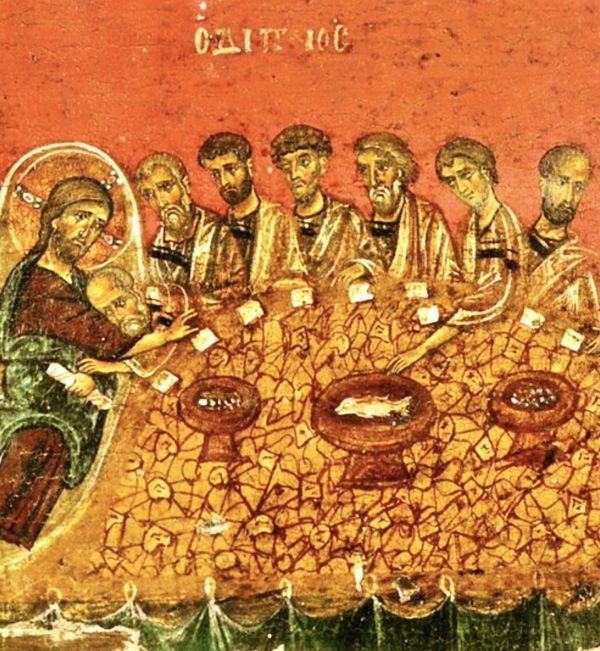On this solemn Sunday of Corpus Christi, the liturgy offers us a passage from Luke about the multiplication of loaves for a huge crowd.
Jesus says to his disciples:
«Give them to eat yourselves» (Lk 9:13).
Francis was in love with France, not because his mother, Monna Pica, came from that country, but because of the flourishing Eucharistic cult, about which he had been informed by James of Vitry, a convinced supporter.
When he went into the woods or was particularly cheerful, he often sang praises in French.
The Sources inform us about his visceral devotion to the Body of Christ.
In Celano's Second Life, we read:
"He burned with love in every fibre of his being for the sacrament of the Body of the Lord, overcome with amazement at such benevolent condescension and generous charity.
He considered it a grave sign of contempt not to participate in the Eucharist, even if it was only once, if time permitted.
He received Communion often and with such devotion that he made others devout as well.
In fact, being filled with reverence for this venerable sacrament, he offered the sacrifice of all his limbs, and when he received the immolated Lamb, he immolated his spirit in that fire which always burned on the altar of his heart.
For this reason, he loved France, a land devoted to the Body of the Lord, and desired to die there because of his veneration for the sacred mysteries.
One day he wanted to send the friars out into the world with precious ciboria, so that they might place the price of redemption in the most worthy place possible, wherever they saw it kept with little decorum" (FF 789).
"He wanted great respect to be shown to the hands of the priest, because they have been given the divine power to consecrate this sacrament.
"If I should happen," he often said, "to meet a saint coming from heaven and a poor priest, I would first greet the priest and run to kiss his hands.
For I would say: 'Wait, St. Lawrence*, for this man's hands touch the Word of life and possess superhuman power'" (FF 790).
And St. Clare, faced with a shortage of bread in the monastery, obtained by grace the ability to multiply it.
"There was only one loaf of bread in the monastery, and the hour of dinner was approaching and hunger was pressing.
Calling the dispenser, the Saint ordered her to divide the bread and send part of it to the friars, keeping the other part inside for the sisters.
From this second half, she ordered fifty slices to be cut, which was the number of women, and to present them to them on the table of poverty.
And to the devout daughter who replied,
"It would take the ancient miracles of Christ to cut so little bread into fifty slices," the Mother replied, saying to her:
"Do as I say, daughter!"
The daughter hastened to carry out her mother's command, and the Mother hastened to offer pious sighs to her Christ for her daughters.
And by divine grace, that small amount grew in the hands of the woman who broke it, so that there was an abundant portion for each member of the community" (FF 3189).
The love of Francis and Clare
for the Body and Blood of Christ made them directly participants in that Sacred Mystery.
* St. Lawrence was only a deacon, like Francis.
Sunday of the Body and Blood of Christ C (Lk 9:11b-17)












